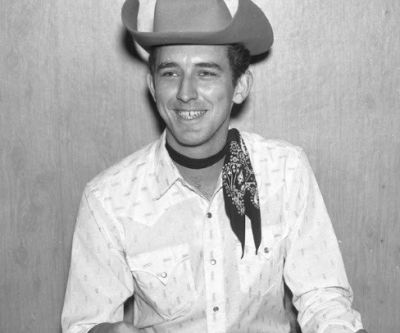December 20, 2018
Tuesday
8:00 p.m.
Minneapolis, MN
Test schedule
A live performance with Robin and Linda Williams at the Cedar Cultural Center
May 20, 2018
Sunday
3:00 p.m.
Lexington, MA
Lexington, MA
A live performance at the Saenger Theatre
April 10, 2018
Tuesday
8:00 p.m.
Tulsa, OK
Tulsa, OK
A live performance at the Brady Theater
March 17, 2018
Saturday
8:00 p.m.
Long Beach, CA
Long Beach, CA
A live performance at the Carpenter Performing Arts Center
March 15, 2018
Thursday
7:00 p.m.
Mobile, AL
Mobile, AL
A live performance at the Saenger Theatre
Excerpt from “The Tempest” Act 4, Scene 1 by William Shakespeare. Public domain. (buy now)
Our revels now are ended. These our actors,
As I foretold you, were all spirits and
Are melted into air, into thin air:
And, like the baseless fabric of this vision,
The cloud-capp’d towers, the gorgeous palaces,
The solemn temples, the great globe itself,
Yea, all which it inherit, shall dissolve
And, like this insubstantial pageant faded,
Leave not a rack behind. We are such stuff
As dreams are made on, and our little life
Is rounded with a sleep.
It’s the birthday of Spanish poet and playwright Federico García Lorca (1898) (books by this author), born in Fuente Vaqueros, in the province of Granada. His father was a successful farmer, and his mother was a gifted pianist. García Lorca published his first book, Impressions and Landscapes, in 1918, and then moved to Madrid the following year, enrolling in the Residencia de Estudiantes (Student Residence), a cultural center that provided a stimulating, dynamic, and progressive environment for university students. It was at the Residencia that García Lorca met and befriended a group of artists, including composer Manuel de Falla, filmmaker Luis Buñuel, and painter Salvador Dali; he also became interested in Surrealism and the avant-garde. During the 1920s, he wrote and staged a couple of plays; the first (The Butterfly’s Evil Spell [1920]) was laughed off the stage, and the second (Mariana Pineda [1927]) received mixed reviews. He also collected folk songs and wrote a great deal of poetry; much of it — like Poem of the Deep Song, published in 1931, and Gypsy Ballads, 1928 — inspired by Andalusian or gypsy culture and music.
He also had an intense relationship with Salvador Dali from 1925 to 1928, which forced him to acknowledge his homosexuality. He became a national celebrity upon the publication of Gypsy Ballads, and was distressed at the loss of privacy this caused; he chafed at the conflict between his public persona and his private self. He grew depressed, and a falling out with Dali and the end of another love affair with a sculptor only made things worse. In 1929, his family arranged for him to take an extended trip to the United States. It was in New York that he began to break out of his pigeonhole as a “gypsy poet.” He wrote A Poet in New York (published posthumously in 1942), a collection that was critical of capitalism and obsessed with urban decay and social injustice.
He turned back to drama when he returned to Spain in 1930. He wrote and premiered the first two plays in his Rural Trilogy: Blood Wedding (1933) and Yerma (1934), and completed the first draft of the third, The House of Bernarda Alba, tackling controversial themes like homoeroticism and the Spanish class system. He also continued to write poetry, including “Lament for a Bullfighter” (1934), about the death of one of his friends:
At five in the afternoon.
It was exactly five in the afternoon.
A boy brought the white sheet
at five in the afternoon.
A frail of lime ready preserved
at five in the afternoon.
The rest was death, and death alone
at five in the afternoon.
In 1936, the Spanish Civil War broke out, and the Nationalists didn’t look favorably on his work or his liberal views. They dragged him from his home on August 16 and imprisoned him without a trial; two or three days later, they drove him to a hill outside of town and shot him. His body was never found.
It’s the birthday of finance advisor Suze Orman, (books by this author) born in Chicago (1951). Her parents were Russian Jewish immigrants, and she grew up on the South Side of Chicago, where her dad owned a take-out chicken restaurant.
She had a speech impediment, wasn’t very good at speaking or at reading, and didn’t do too well in school, but she was good at math. She went to college at the University of Illinois, but her career counselor told her that she wasn’t smart enough to be a surgeon, so she looked around and heard that the easiest major was social work, and she majored in that. After four years, just one class short of graduating, she left and headed to Berkeley, where she worked cutting trees and living in her van, and then as a waitress. She waited tables at the Buttercup Café for seven years, and by the time she was 30, she was still making just $400 a month.
She wanted to open her own restaurant, and a group of regulars decided to give her an interest-free loan of $50,000. One of them suggested that she put the money in a money market account at Merrill Lynch. She didn’t know any thing about finances, so she just handed her money over to a broker and let him do whatever he wanted, but he invested it badly and in just three months all of the $50,000 was gone.
So she went to Merrill Lynch and asked for a job, and somehow, she was hired, the only woman in the office. When she realized that her broker had acted illegally the way he had invested her money, she sued Merrill Lynch, not realizing that by suing them, she was also legally obligating them to keep her as an employee for the duration of the case. By the time the case had gone through, she was one of the most successful brokers there, and they didn’t feel like they should fire her. So she ended up with lots of money and a solid understanding of the financial world.
She decided to share her advice and story with other normal people like her. Mostly she advises people to follow a few simple rules — to make dependable solid investments, to plan for the future, and to think through their emotional or psychological relationship to money.
She says, “People first, then money, then things.”
Just after midnight on this day in 1968, Robert Kennedy was assassinated in Los Angeles by Sirhan Bishara Sirhan, a 24-year-old Palestinian immigrant. Kennedy had just won California’s Democratic presidential primary, and he was exiting through the kitchen of the Ambassador Hotel. Juan Romero, a 17-year-old busboy, was shaking his hand when Sirhan began firing. Several of the men with him tackled Sirhan, including writer George Plimpton, Olympic athlete Rafer Johnson, and football star Rosey Grier. Romero knelt by Kennedy, and put a rosary in his hand.
His brother Edward “Ted” Kennedy delivered the eulogy, his third for a dead brother:
“My brother need not be idealized, or enlarged in death beyond what he was in life; to be remembered simply as a good and decent man, who saw wrong and tried to right it, saw suffering and tried to heal it, saw war and tried to stop it. Those of us who loved him and who take him to his rest today, pray that what he was to us and what he wished for others will some day come to pass for all the world. As he said many times, in many parts of this nation, to those he touched and who sought to touch him: ‘Some men see things as they are and say why. I dream things that never were and say why not.'”
Today is the birthday of the novelist Rick Riordan (books by this author), born in San Antonio, Texas (1964). He’s the child of teachers, and was a teacher himself. He became interested in Greek and Norse mythology as a teen, and he told his sons Greek myths as bedtime stories. When he ran out of myths, he began to make up his own. His first idea was the story of a young demigod in contemporary America, a half-human son of the god Poseidon. The boy, who has ADHD and dyslexia, learns his true parentage, and goes on a quest to retrieve Zeus’s lightning bolt. Riordan’s son Haley told him he should write it as a book, and that became The Lightning Thief (2005), the first book in the popular five-volume “Percy Jackson and the Olympians” series for young adults.
Today is the birthday of broadcast journalist Bill Moyers (books by this author), born in Hugo, Oklahoma (1934). He’s hosted several public affairs programs, and has become known for his in-depth, thoughtful interview series, including The Power of Myth, A World of Ideas, and Moyers and Company. He’s often an outspoken critic of the news media and advocate for media reform.
Harriet Beecher Stowe‘s Uncle Tom’s Cabin (books by this author) began its serial run in abolitionist newspaper, the National Era on this date in 1851. It ran in weekly installments for 10 months. It generated some interest among opponents to slavery, but it didn’t reach a larger audience until it was republished as a book in 1852.
Many critics dismissed the novel as sentimental, and several characters gave rise to persistent stereotypes of African-Americans. Even so, it attracted thousands of Northerners to the abolitionist cause. The book sold 300,000 copies in the United States in its first year in print.






